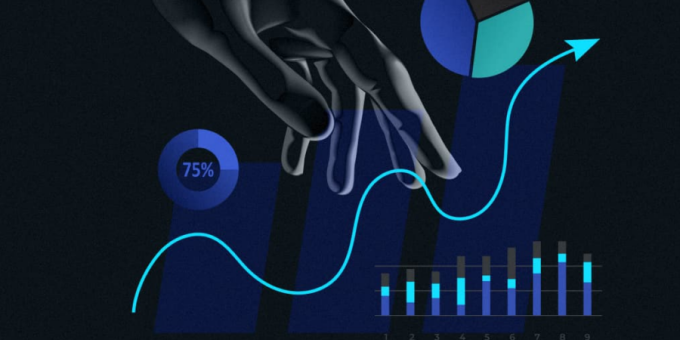
Artificial Intelligence (AI) continues to be a driving force behind transformative business strategies. In 2024, AI is more than just an operational enhancement—it’s reshaping how businesses strategize, reach consumers, and scale operations. Companies that adapt and leverage AI are not only gaining a competitive edge but also unlocking new revenue streams and optimizing processes like never before. Let’s dive into the key AI-driven trends that are set to revolutionize business strategy in 2024 and beyond.
1. AI-Powered Personalization at Scale
Today’s customers expect tailored experiences, and AI is enabling hyperpersonalized marketing, recommendations, and interactions.
- Why It Matters: Businesses leveraging AI for personalization see higher engagement rates and customer satisfaction. Personalized emails, ads, and product recommendations keep customers engaged and loyal.
- Real-World Example: E-commerce platforms use AI to analyze browsing habits, purchase history, and preferences to recommend products in real-time.
Takeaway: Personalization powered by AI is no longer optional; it’s essential for staying competitive.
2. Predictive Analytics for Data-Driven Decision Making
Businesses can anticipate trends, customer needs, and potential market shifts with the help of predictive analytics, an AI-powered field.
- Why It Matters: With AI, companies can analyze vast amounts of data quickly, providing insights that inform smarter decision-making and strategic planning.
- Real-World Example: Retailers use predictive analytics to optimize stock, forecast demand, and even anticipate seasonal trends.
Takeaway: Predictive analytics ensures businesses stay proactive rather than reactive.
3. Automation of Repetitive Processes
AI-driven automation streamlines tasks, freeing employees for higher-value work and increasing overall efficiency.
- Why It Matters: Automation reduces operational costs and improves accuracy. Repetitive tasks, like data entry, can be handled by AI, reducing human error.
- Real-World Example: In finance, AI automates invoice processing and reconciliations, reducing the time and cost of managing accounts payable.
Takeaway: Automation improves efficiency and allows your team to focus on strategic initiatives.
4. Natural Language Processing (NLP) for Enhanced Customer Service
AI-powered Natural Language Processing (NLP) tools are redefining customer service through chatbots and virtual assistants.
- Why It Matters: NLP allows businesses to provide 24/7 support with AI-powered assistants that can answer questions, handle complaints, and provide information efficiently.
- Real-World Example: Banks are adopting AI chatbots to assist customers with account inquiries, improving response time and customer satisfaction.
Takeaway: Implementing NLP solutions can enhance customer experience and reduce customer service costs.
5. Enhanced Cybersecurity with AI-Driven Threat Detection
As cyber threats become more sophisticated, AI plays a critical role in enhancing cybersecurity protocols.
- Why It Matters: AI’s ability to identify patterns and detect anomalies helps businesses prevent data breaches and protect sensitive information.
- Real-World Example: Financial institutions use AI to monitor transactions and detect fraudulent activity in real-time, protecting both the company and its customers.
Takeaway: Integrating AI in cybersecurity is essential for safeguarding business operations and customer trust.
6. Smart Supply Chain Management
AI’s impact on supply chain management is profound, offering real-time insights, demand forecasting, and inventory optimization.
- Why It Matters: AI helps businesses predict supply and demand accurately, reducing inventory costs and minimizing waste.
- Real-World Example: Retail giants use AI to predict stock needs, streamline logistics, and ensure products are available when and where they’re needed.
Takeaway: AI-driven supply chain management ensures efficiency and aligns with sustainability goals.
7. Human-AI Collaboration for Enhanced Productivity
Rather than replacing humans, AI is increasingly seen as a collaborative partner, enhancing productivity by assisting employees.
- Why It Matters: AI can support decision-making, generate reports, and even conduct research, allowing teams to focus on creative and strategic tasks.
- Real-World Example: Marketing teams use AI to analyze campaign data, freeing them to focus on campaign strategy and creativity.
Takeaway: Human-AI collaboration creates a balance, boosting productivity and morale.
8. AI in Product Development and Innovation
AI is helping companies innovate faster by identifying market needs, developing new products, and optimizing the product design process.
- Why It Matters: AI can analyze customer feedback, predict trends, and identify product gaps that human analysts may miss.
- Real-World Example: Consumer goods companies are using AI to test product designs and optimize them based on simulated customer reactions.
Takeaway: AI can speed up innovation cycles, helping businesses bring better products to market faster.
9. AI for Financial Planning and Analysis (FP&A)
Financial Planning and Analysis (FP&A) is crucial for business strategy, and AI is taking this to the next level with real-time forecasting and reporting.
- Why It Matters: AI-driven FP&A tools enable businesses to forecast revenues, manage budgets, and optimize cash flow with greater accuracy.
- Real-World Example: Startups and large enterprises alike use AI tools to project growth scenarios, reduce risks, and make sound investment decisions.
Takeaway: AI empowers finance teams to make data-backed, strategic decisions for sustainable growth.
10. Sustainability Tracking and Reporting
AI is increasingly being used to help companies track and report on sustainability initiatives, aligning with growing demands for environmental responsibility.
- Why It Matters: Consumers and investors alike are drawn to companies with strong sustainability practices. AI helps businesses monitor carbon footprints, optimize resource usage, and adhere to compliance.
- Real-World Example: Companies in manufacturing use AI to monitor emissions and optimize energy use, ensuring they meet regulatory standards.
Takeaway: AI-driven sustainability tracking is not only ethical but also powerful brand differentiator.
Conclusion
AI is shaping business strategies in ways that go beyond operational efficiency—it’s helping companies to create more customer-centric experiences, foster innovation, and align with ethical values. As we head into 2024, businesses that adopt these AI-driven trends will not only thrive but redefine the competitive landscape. Staying informed and adapting to these AI advancements is no longer an option; it’s a necessity for businesses looking to excel in the years to come.
